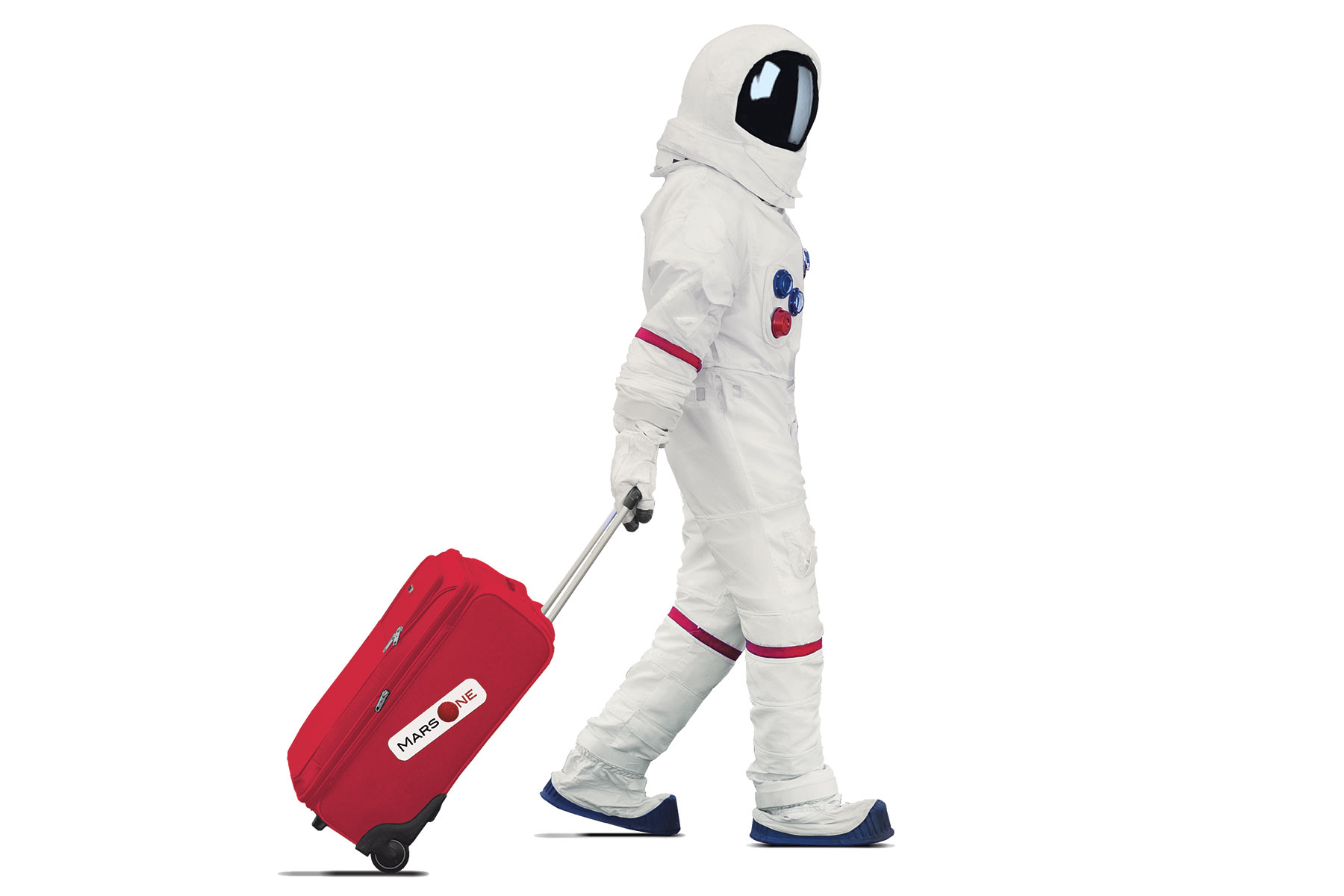
There are a lot of places I want to visit, all of which happen to be on Earth. Also, not one of them stipulates that I have to stay there until I die. Yet more than 200,000 people have completely different vacation requirements, filling out a long application and paying a fee to a Dutch nonprofit organization called Mars One, hoping to be one of four chosen to take a one-way trip to Mars in 2024. I wouldn’t go to Vegas for a weekend with three strangers chosen by a group called Mars One.
Mars One has narrowed its applicant pool to 1,058 of what I have to imagine are the least social people in the world. Because according to all the psychological literature I’ve read, the only reason people have ever offered to spend the rest of their lives on a new planet is that theirs exploded. So I gathered five of the potential martians for lunch in Los Angeles, eager to witness the awkward conversation of human beings who disliked not only people but also animals, plants, food, air, warmth and light. As they arrived at the restaurant, I was shocked to find out they were all good-looking. Average good-looking for Los Angeles, but insanely hot for Mars. They had jobs and didn’t seem like they were running from horrible families, massive debt or oxygen.
Even more surprising, they immediately started chatting. Evan Dorn, a 39-year-old web developer, said he knew I’d assumed they’d be depressed loner freaks. “I know a lot of true believers in space, and they’re pretty normal,” he said. “I think it’s less special than being a chess master or a tennis champion.” True, they were well rounded, but I bet if you told Roger Federer that he could regain his No. 1 ranking if he lived the rest of his life in a plastic bubble in a cave covered with a foot of dirt to prevent death by radiation, he might put down the racket.
The weirdest thing about them, in fact, was their positivity. They were well traveled and interested in everything, no matter how boring. They were, actually, the kind of people I’d like to vacation with. “Think about when you’re a kid, how much fun it was to flip rocks. I’d be flipping rocks all day,” said 30-year-old insurance financer Adam Hurley, in a way that made me believe he really might flip rocks all day. “Don’t get me wrong–Earth is a beautiful place,” he added, as if he were talking about Manhattan after moving to the suburbs.
Dorn sounded like he had gotten the gist of Earth: “I’m ready for something new. At my age, I’d know if I was going to be Elon Musk.” I like to think that someone is watching reruns of talking-head shows on E! and thinking, If I can’t be Joel Stein, there’s no reason to stay on this planet.
I asked if they’d miss human beings. Sure, they said, but that’s the price of adventure and progress. “A lot of my friends already started crying,” said Onaje Abayomi, a 26-year-old barista. “It puts a real strain on a relationship,” agreed Sue Ann Pien, a 34-year-old actress with a tattoo of the galaxy on her head, whose girlfriend also cried. When I implied that being a lesbian might be hard on a mission with straight men since she will most likely be constantly begged to recount, yet again, her lesbian sex stories, she told me that she was very flexible in dating. I think she has a 100% chance of being chosen. Especially since Mars One hopes to finance its $6 billion operation in part by airing the training and mission as a reality show.
Eventually we discovered that all of them had parents in the military and none was religious. In fact, Dorn said he’d worry about going to Mars with a religious person. “They can be judgmental about behavior,” he said.
“I don’t think there will be any sinning opportunities,” I said.
“Oh, there will be sinning,” said Ben McLain, a 30-year-old comedian.
“With 37% gravity,” added Pien.
These truly were optimistic people.
And really likable. They were smart and curious and kind. As they finished lunch, several mentioned how they were inspired as kids by Bill Nye the Science Guy. “I love him. I would have his children in a heartbeat,” said McLain, who must have missed Nye’s episode on reproduction.
A week later, coincidentally, I met Nye. He had the same exuberance and curiosity as my Marstronaut friends. He thought, however, that they were kind of dumb. Life, he explained, is unsustainable on Mars, and even if it weren’t, they would quickly succumb to extreme depression, since even people in far-less-isolated Antarctica lose it after several months. I knew he was right, but I also knew I’d rather live on a planet filled with Mars One applicants than with people like me and Nye. As long as it’s this one.
More Must-Reads from TIME
- Cybersecurity Experts Are Sounding the Alarm on DOGE
- Meet the 2025 Women of the Year
- The Harsh Truth About Disability Inclusion
- Why Do More Young Adults Have Cancer?
- Colman Domingo Leads With Radical Love
- How to Get Better at Doing Things Alone
- Michelle Zauner Stares Down the Darkness
Contact us at letters@time.com